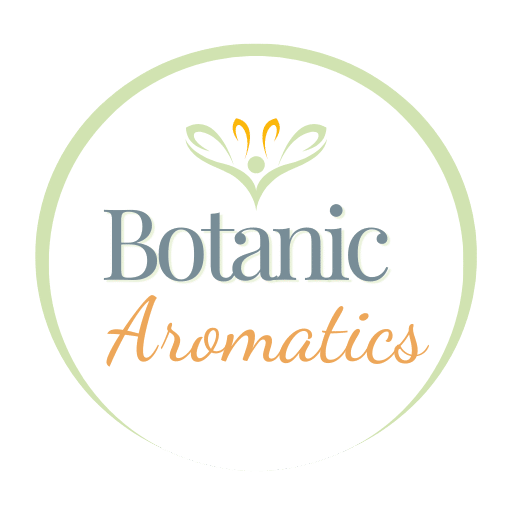In the hustle and bustle of modern life, a good night’s sleep can sometimes feel like an elusive dream. If you find yourself tossing and turning, unable to drift off into a peaceful slumber, it might be time to consider a natural herbal sleep aid: a soothing tea blend specifically designed to promote relaxation and improve sleep quality. Our Peace Be With Me tea blend features chamomile, skullcap, Tulsi, and passion flower – a combination of herbs known for their calming and sleep-inducing properties.
Let’s dive into the benefits of each ingredient and how this blend can help you achieve a restful night’s sleep.
Chamomile: The Classic Sleep Aid
Chamomile is a well-known herb that has been used for centuries to promote sleep and relaxation. It contains apigenin, an antioxidant that binds to certain receptors in the brain, which may decrease anxiety and initiate sleep. A study published in the Journal of Advanced Nursing found that postpartum women who drank chamomile tea experienced significantly better sleep quality and reduced symptoms of depression compared to those who did not (Chang & Chen, 2016).
Skullcap: Nature’s Tranquilizer
Skullcap is another powerful herb known for its anxiolytic and sedative properties. Research indicates that skullcap can significantly enhance mood and reduce anxiety without causing drowsiness during the day (Wolfson & Hoffmann, 2003). By increasing the activity of gamma-aminobutyric acid (GABA), a neurotransmitter that promotes relaxation, skullcap can help improve sleep quality.
Tulsi: The Holy Basil
Tulsi, or holy basil, is an adaptogenic herb that helps the body manage stress. According to research published in the Journal of Ayurveda and Integrative Medicine, tulsi can improve sleep quality by reducing stress and promoting relaxation (Cohen, 2014). Its calming effects on the central nervous system make it an excellent addition to a sleep-promoting tea blend.
Passion Flower: The Anxiety Alleviator
Passion flower is renowned for its ability to treat anxiety and insomnia. Studies show that passion flower can increase levels of GABA in the brain, reducing brain activity and promoting relaxation (Ngan & Conduit, 2011). A study in the Journal of Clinical Pharmacy and Therapeutics found that passion flower significantly improved sleep quality in participants with sleep disturbances (Akhondzadeh et al., 2001).
The Perfect Sleep Routine
In addition to your sleep tea, consider incorporating Dreamweaver foot massage oil for your feet. Blended with essential oils known to assist with sleep and insomnia, this is a perfect pairing.
Putting It To Bed
Combining chamomile, skullcap, tulsi, and passion flower in a tea blend offers a natural and effective way to improve sleep quality. By addressing various aspects of sleep disturbances, this blend helps reduce anxiety, manage stress, and promote overall relaxation. With the addition of essential oils and a consistent bedtime routine, you can create a comprehensive approach to achieving a restful night’s sleep.
References
Chang, S. M., & Chen, C. H. (2016). Effects of an intervention with drinking chamomile tea on sleep quality and depression in sleep disturbed postnatal women: a randomized controlled trial. Journal of Advanced Nursing, 72(2), 306-315.
Cohen, M. M. (2014). Tulsi – Ocimum sanctum: A herb for all reasons. Journal of Ayurveda and Integrative Medicine, 5(4), 251-259.
Ngan, A., & Conduit, R. (2011). A double-blind, placebo-controlled investigation of the effects of Passiflora incarnata (Passionflower) herbal tea on subjective sleep quality. Phytotherapy Research, 25(8), 1153-1159.
Akhondzadeh, S., et al. (2001). Comparison of passion flower and oxazepam in the treatment of generalized anxiety disorder: a double-blind randomized controlled trial. Journal of Clinical Pharmacy and Therapeutics, 26(5), 363-367.
Wolfson, P., & Hoffmann, D. L. (2003). An investigation into the efficacy of Scutellaria lateriflora in healthy volunteers. Phytomedicine, 10(6-7), 640-649.
Disclaimer: The information provided in this content is for educational purposes only and is not intended to diagnose, treat, cure, or prevent any illness or health condition. The use of essential oils and natural remedies mentioned herein should not replace professional medical advice or treatment. We strongly recommend consulting with a qualified healthcare practitioner, such as a physician, aromatherapist, or other experts in integrative medicine, before starting any new health regimen, especially if you have pre-existing health conditions, are pregnant, breastfeeding, or considering the use of essential oils for children. Always perform a patch test for allergic reactions before applying essential oils topically, and follow safe usage guidelines. Your health and wellness are important to us, and making informed decisions with professional guidance is paramount.

Leslie has been a dedicated explorer of holistic remedies for over two decades. Her personal journey has evolved into a thriving business, Botanic Aromatics. Currently completing a certification in professional aromatherapy through Essence of Thyme College of Holistic Studies, Leslie brings a wealth of knowledge and passion to the realm of natural wellness. With a BA in psychology, Reiki mastery, ordained minister, and shamanic practitioner, Leslie combines diverse skills and insights to pursue holistic living. Alongside her holistic ventures, Leslie is an avid writer, committed to sharing information and passionately conveying insights and knowledge to inspire others on their wellness journey. In her business, Leslie seamlessly intertwines research and intuition to craft unique products for health and wellness, embodying a commitment to balance and personal well-being.
Content written in collaboration with ChatGPT4, Co-Pilot, Yoast, Grammarly and Canva

